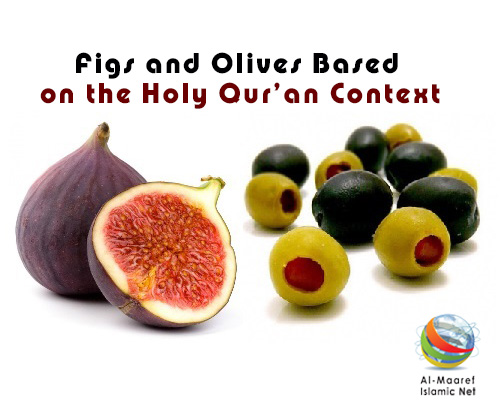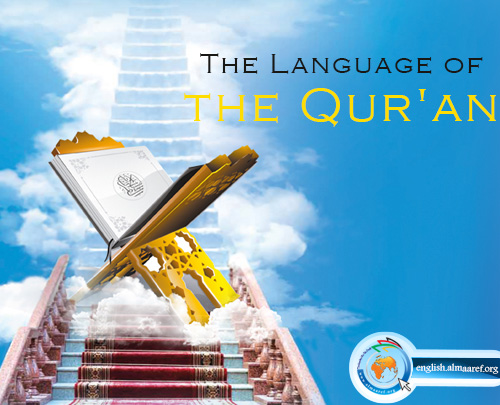This we may attribute, firstly, to the fact that there is no verse whose meaning is totally obscure since the Qur'an describes itself as a light, as a guidance and as an explanation. Thus it is not befitting that there be verses which fail to reveal their meaning, or to illuminate the Qur'an as a whole.
We should examine again the verse,
﴾Will they not ponder on the Qur'an. If it had been from other than God they would have found much inconsistency in it﴿ [IV:82].
Thus reflection on the Qur'an would remove all kinds of seeming inconsistencies making it unacceptable to say, as do most of the scholars, that the implicit verses cannot be totally understood and that apparent inconsistencies cannot be resolved.
Other scholars say that what is meant by the implicit verses are the letters found at the beginning of certain chapters.
(These are known as the muqatta'ah-letters, like Alif, Lam, Mim, Alif, Lam Ra', Ha, Mim, whose real meaning is unknown).
We must, however, remember that the implicit verses are so-called when read in relation to the explicit verses. This denotes that, accompanying the hidden meaning of the implicit, there is a surface (or literal) meaning whereby the real and the apparent meanings come together in intricate relationship with one another.
It should be understood that the letters at the opening of certain chapters do not have any literal meaning. It seems that a group of misguided men use the implicit verses to mislead people, but never in Islam has one heard of anyone trying to use the muqatta'ah-letters to do so.
Some commentators say that the meaning of the word mutashabih, (in the verse), refers to the famous story1 of the Jews who wanted to find an indication of the duration of Islam within the order of the letters, but the Prophet used to read the letters one after the other and so confuse their calculations.
This view is also without substance since, even if the story is true, it is not of sufficient impact nor conviction to be considered as an interpretation of the implicit verses. Whatever the Jews talked, it contained no malice because, even if the religion, din, of Islam was for a limited period of time (and, thus, subject to abrogation), their remarks would in no way be a criticism of the purity and reality of Islam considering that all religions revealed by God prior to Islam were for a specific period and open to abrogation.
Secondly, this view implies that the word ta'wil (which may be translated as "interpretation") in the verse refers to a meaning other than the apparent literal meaning and that it is used only as a reference to the implicit verses. This is incorrect, as we shall see in a later chapter dealing with exegesis ta'wil and revelation, tanzil (the actual text or letter of the verse) how exegesis in Qur'anic terminology does not refer to one meaning but to several, encompassing such terms as realization, fulfilment, interpretation and explanation.
We shall also discuss how all Qur'anic verses have a specific interpretation, ta'wil and not just their explicit and implicit definitions. On examination, the words of the explicit verses (ayat muhkamah), are seen to describe the phrase "They are the source of the Book," meaning that the explicit verses include the most important subjects of the Book, and the theme of the rest of the verses is secondary and dependent upon them.
This implies that the real point intended to be conveyed by the implicit verses refers back to the explicit verses. Thus, the meanings of the implicit are illuminated by referring back to the source (or explicit) verses.
Thus we are left with no verses which have no obvious indication as to their true meaning; they are either immediately clear by virtue of their being in the class of explicit verses or, in the case of the implicit, made clear by the other explicit verses. As for the muqatta'ah-letters at the beginning of the chapters, they do not have any apparent meaning since they are not words in the normal sense and possess no meaning comprehensible to man; thus, they are outside of the classification of explicit and the implicit.
Again, we would refer the reader to an examination of the following verse in order to emphasize the truth of our view:
And so why do they not reflect upon the Qur'an or are there locks upon their hearts. "And, likewise, the verse, "and why do they not reflect upon the Qur'an, if it were from other than God they would have found much inconsistency in it."
* The Qura'n in Islam, It's Impact and Influence on the Life's of Muslims. By Allamah Sayyid M.H. Tabtaba'i. Ansariyan Publications. P.O.B 37185/185/187 QUM. Islamic Republic of Iran.
1- Al-'Ayyashi, Kitab al-tafsir, vol. 1, p. 16; al-Qummi, Tafsir, beginning of the commentary on Surat al-Baqarah; al-Huwayzi, tafsir nur al-thaqalayn, vol. 1, p.22.




















